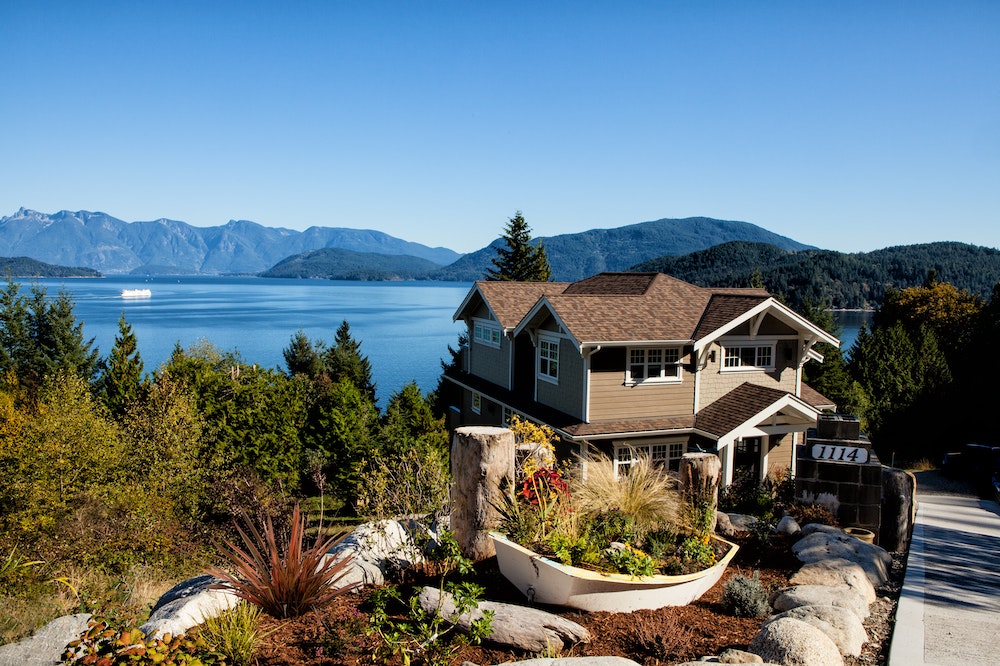Though Florida is a state plenty familiar with hurricanes, which often bring sweeping wind and torrential rain that can cause extensive damage to a home, it doesn’t necessarily take one of these massive storms for water damage to wreak its havoc. It’s true that flooding damage is a leading cause of needed home repairs after a hurricane rolls through, but water damage can affect your home at any time of the year if you aren’t properly prepared. And if your property insurance policy isn’t prepared correctly either, you could be left paying for all those expensive repair and replacement costs out of your own pocket.
Here are the 6 most common effects and scenarios of water damage on your home, how they can occur, and how you might be able to prepare for and address them before they break the bank.
Structural Damage
Structural damage—which is defined as any type of damage that compromises the core integrity of a building—can be the most devastating type of damage caused by water. And yet, it can also be the least noticeable when taking a look at your home. That’s because you may not see the affects of structural water damage until it has taken its toll and made your home unlivable.
But leaking water or sweeping floods can bear down on the foundation, walls, roof, and load-bearing points of your home in a matter of minutes or over a much longer-term period if you have something like a small but consistent leak. It can cause drywall to deteriorate, the subfloor to warp or split, and even solidly-built materials like concrete or stone to crack and become porous. Unless these structural affects are addressed and repaired, the very building foundation can become too weak to be deemed safe to live in, effectively destroying your home.
Your Florida home insurance policy should have a section dedicated to the type of structural damage that’s covered by your policy when water is found to be the cause. And when it comes to hurricanes, you’ll want to make sure you have additional wind and water damage addendums added to your policy to make sure this type of damage is thoroughly covered.
Mold
Mold is most often caused by slow leaking or flooding that has resulted in standing water being in place for an extended period of time. When water is combined with the right temperatures, it can cause a variety of different types of mold to begin growing in as quickly as 48 hours. And once mold is present, it can be incredibly expensive to treat and remove properly. In fact, the presence of some types of mold may require that your family vacate your house until it’s dealt with, as it can cause some adverse side effects.
It doesn’t take hurricane flooding to cause mold—it can appear when broken or cracked pipes leak into your walls or ceiling, or moisture from regular weather seeps into your home. Mold coverage is an absolute essential part of your home insurance policy to make sure you have coverage for year-round, but be careful with policies who like to try and exclude certain types of mold, or certain situations in which the mold may have been introduced.
Electrical Damage
Most people are aware that water and electricity do not mix well. The two can cause dangerous scenarios if there’s an active charge running through standing flood water. But even if it doesn’t pose an immediate physical threat, your home’s electric systems can easily be damaged by even the smallest amount of moisture near wiring, outlets, and electrical boxes. When this is the case, they may all become unsafe to be around until they are inspected by a professional. And having both a water expert and an electrician come out and do work on your home can be expensive.
Also keep in mind that electrical water damage most often affects kitchen appliances, washing machines, dryers, hot water tanks, furnaces, and low-mounted outlets—not just the electrical systems running through your home. So make sure your appliances are covered under your policy as well if you don’t want to end up replacing them out of your own pocket.
Health Hazards
The mold that can grow in and on the structures of your home when standing water is present may seem like threat enough, but the reality is, when water is present, many of the items in your home become susceptible to harmful bacteria. If not treated correctly, these toxins can linger on or within furniture, carpets, your HVAC system, and on personal items. These bacteria and microbes have the potential to cause serious respiratory issues that can create a long an expensive road to recovery for you and your family members.
Unfortunately, depending on what type of insurance policy you have for your home, these kinds of additional health-affecting hazards may not actually be covered. Check over your policy carefully to see if that’s the case, and if it is, be sure to address these potential issues early, before the damage gets any worse.
Damaged Personal Items
In the same way that water can cause structural damage to your overall dwelling and its foundation, it has the same power to destroy your personal items too. And while many personal items can often be replaced, such as furniture, décor, food, toys, clothing, and electronics, many items within your home can’t be, or are much more difficult to replace. These can include items like family photos or heirlooms, personal memorabilia, and important personal documents.
It’s wise to check through your insurance policy to see what kinds of personal items it covers, as well as the monetary limits on these items. Consider how the needs of your and your family might have changed since you last updated your policy and make adjustments as needed—before the next hurricane makes landfall.
Bug Infestations
Certain types of bugs absolutely love moisture. As such, your flooded or leaking home may be an appealing attraction for insects like mosquitoes, beetles, fleas, ticks, flies, and spiders. Moisture also creates an excellent breeding ground for these pests, which all have the ability to lay thousands of eggs throughout your home, creating a never-ending cycle of life that can be hard to control. Not to mention, expensive to address.
Your insurance policy may not provide coverage for hiring professionals to exterminate if it’s found that your bug infestation was caused by water damage that could have and should have been addressed or prevented before the bugs arrived. Be sure to check your policy thoroughly for these kinds of details.
What to Do if You’re Worried About Water Damage
Even the most prepared homeowners can have unexpected accidents or unpredictable events befall their home. You may not know the extent of damage a hurricane can cause until after it has passed, or may not know a leak exists in the bathroom wall until it becomes visibly evident, which usually means damage has already been done. And because life can sometimes be unpredictable that way, the best course of action to follow is to make sure your home insurance policy is up to date with all the coverage you think you might need.
And if your insurance provider is still giving you trouble even after you’ve rounded out your policy and cooperated with them as best you can in the face of water damage, turning to an experienced property insurance legal team like The Whisler Law Firm is a great next step. We have decades of experience helping homeowners across Florida receive the fair compensation they deserve after a hurricane, an accident, an other damages to their property that should be covered by their insurance policies. And we can help you too. Call 833-529-5677 or fill out our online form to schedule your free consultation.



